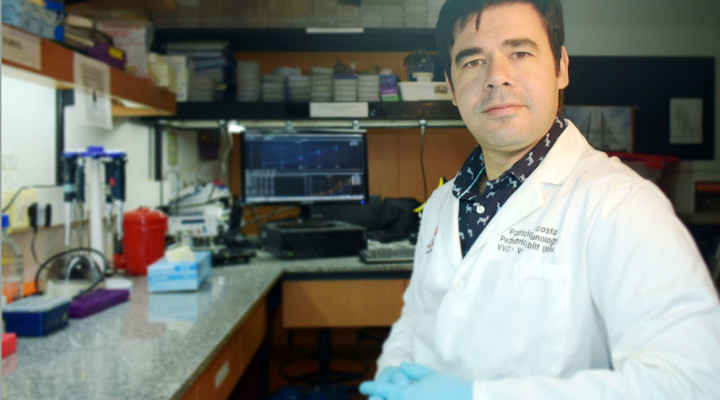CONICET researcher becomes a board member of the American Society for Microbiology
Patricio Acosta is the first non-resident foreign researcher who becomes part of the Society that gathers more than 40 thousand members and is represented by more than 158 countries.
Patricio Acosta, researcher of the National Scientific and Technical Research Council (CONICET), who works at the Laboratorio de Inmunopatología de la Fundación para la Investigación en Infectología Infantil (INFANT), was chosen as a board member of the American Society for Microbiology (ASM) and ex-officio board member of the American Academy of Microbiology (AAM). This is the first time a non-resident foreign member becomes a member of this prestigious Society founded in 1899.
As regards the importance of the appointment, Acosta explains: “This appointment is important due to several reasons: first because the ASM is the largest and oldest institution devoted to life sciences worldwide. Its presence in 158 countries –in the five continents– is relevant: it publishes 18 scientific journals on microbiology, including the most relevant ones. It is worth mentioning that their members are well known scientists such as Yoshinori Ohsumi, 2016 Nobel Prize in Medicine.”
“In my case, this is the first time this institution appoints a non-resident board member. Apart from that, I’m also the youngest member in the history of the Society”, the researcher adds.
The board comprises 12 members who make the decisions of all the institution including strategic management, defending the objectives of the Society, authorizing political business, and taking fiduciary, legal and commercial decisions. For this reason, the members of the board have an advisory group in different areas such as publications, organization of events, education, etc.
Patricio Acosta studied genetics at the Universidad Nacional del Nordeste and has a PhD in Pathology of the Facultad de Medicina of the Universidad de Buenos Aires (UBA). He researches into respiratory virus and factors linked to the severity of low-income populations. Besides, he teaches at the Facultad de Medicina of the UBA.
About the American Society for Microbiology
This institution was founded in 1899 and has its headquarters in Washington. Its mission is to promote knowledge on the role of microbes in our planet and communicate it so as to improve global health, the environment and economic well-being in the entire world.
The number of members has increased from 59 in 1899 to 40 thousand now, with more than a third of them out of the USA. The members represent 26 disciplines on microbiology plus one division for education on microbiology.
The eligibility for the Complete Member is open to any person who is interested in microbiology and has at least a PhD or equivalent experience on microbiology or any related field.
The study on microbiology includes: infectious diseases, recombinant DNA technology, alternative methods for energy production and waste recycling, new food sources, development of new drugs and the etiology of sexually transmitted diseases. Microbiology is also in charge of environmental problems and industrial process.
Important scientists such as Pasteur, Koch, Fleming, Leeuwenhoek, Lister, Jenner and Salk have worked on microbiology and made some of the greatest contributions to humanity. In the twentieth century, a third of all the Nobel Prize winners in Physiology or Medicine have been given to microbiologists.
